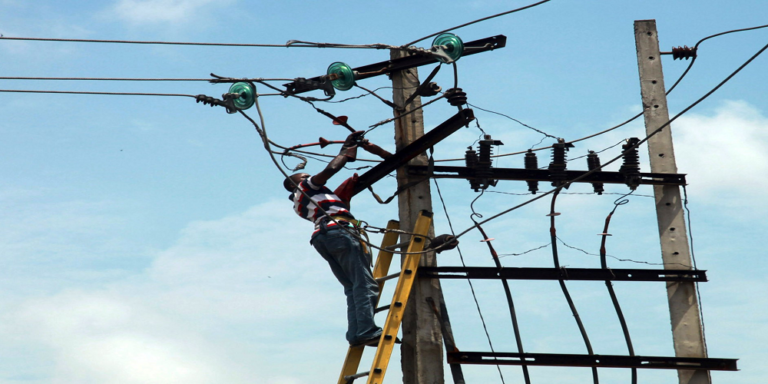
The $3.4 billion emergency financial assistance received by Nigeria from the International Monetary Fund (IMF) came with a huge price that the Nigerian people will have to pay in pain. As part of the agreement to secure the emergency financial assistance, Nigeria and IMF agreed that the fund will be judiciously used and the oil and electricity subsidies will be totally removed.
In view of this, the federal government of Nigeria is gearing up to review electricity charges upward as part of efforts to revamp the economy from the ravages of coronavirus pandemic.
The Minister of Finance Zainab Ahmed and the Central Bank of Nigeria Governor, Godwin Emefiele, had earlier, in a joint letter to the international monetary body promised that Nigerians will pay the full cost of their electricity consumption in 2021. The federal government also promised the IMF that electricity tariff shortfalls will be capped to N380 billion in 2020.
Register for Tekedia Mini-MBA edition 19 (Feb 9 – May 2, 2026): big discounts for early bird.
Tekedia AI in Business Masterclass opens registrations.
Join Tekedia Capital Syndicate and co-invest in great global startups.
Register for Tekedia AI Lab: From Technical Design to Deployment (next edition begins Jan 24 2026).
“We are also advancing in our power sector reforms – with technical assistance and financial support from the World Bank – including through capping electricity tariff shortfalls this year to N380 billion and moving to full cost-reflective tariffs in 2021,” the federal government’s letter partly said.
The increment of electricity tariff has been a long battle between the electricity Distribution Companies (DisCos), and consumers. With the epileptic condition of power supply in the country, the DisCos have found it hard to convince Nigerians to pay more for the little they use.
The last attempt made by the DisCos to increase electricity tariff was approved by the National Electricity Regulatory Commission (NERC) on January 4. Though the approved charges were not as cost-reflective as demanded by the DisCos, it was met with stiff opposition by labor unions, lawmakers and Nigerians, forcing the Regulator to put the increment on hold.
The planned tariff increment billed to take effect from April 1, was going to add about N20 increase in per unit charges, which was deemed too high by consumers and not good enough by the distribution companies.
However, the federal government’s promise to the IMF means that the incoming increment will be higher than what was approved by NERC in April. The IMF had approved the emergency financial assistance on the condition that it will monitor how the fund will be used, especially on the sectors it has long advocated that subsidies be removed – mainly the oil and power sectors.
“Once the COVID-19 crisis passes, the focus should remain on medium-term macroeconomic stability, with revenue-based fiscal consolidation essential to keep Nigeria’s debt sustainable and create fiscal space for priority spending. Implementation of the reform priorities under the Economic Recovery Growth Plan, particularly on power and governance, remains crucial to boost growth over the medium term,” the IMF has said in a statement after approving the $3.4 billion fund for Nigeria.
In October, before the outbreak of coronavirus, the IMF had urged Nigeria and other African countries to phase out implicit fuel subsidies in order to bridge the wide gap between the rich and poor in their respective countries.
“Fuel subsidies tend to be poorly targeted, foster over-consumption, curtail investment and maintenance in related sectors and crowd out more productive government spending.
“Some countries need to take the opportunity afforded by low oil prices to reduce fuel subsidies to free up additional fiscal space (Cameroon, Nigeria, Senegal), as was done in Mozambique and South Sudan and is being pursued by Burkina Faso,” the IMF said.
Just like the power sector, the removal of fuel subsidy has been a bone of contention between the federal government of Nigeria and the people. Year after year, the move by the government to remove it has been resisted by the coalition of civil society groups and the Nigerian people. However, the global COVID-19 health crisis appears to have offered the opportunity to Nigerian government on a platter of gold.
As oil prices plunged below $30 per barrel, the federal government of Nigeria reduced the petrol pump price to N123 from N143. Subsequently, the Nigerian National Petroleum Commission (NNPC) announced the total removal of fuel subsidy, a development the IMF didn’t hold back from applauding.
Unlike other times when the government had attempted to remove the subsidy, there was no protest. It is understandable because of the global oil price that has kept the pump price below the N143 in Nigeria.
However, the concern hangs on what happens when the COVID-19 pandemic is over. As economies around the world reopen, the oil market is gradually making gains. The oil price is rising above $30 per barrel and is expected to do better in the coming months as more companies and industries resume and more people get back to work. It is expected that the pump price in Nigeria will rise accordingly, a development most Nigerians are not aware of right now and they are not prepared for it in the nearest future.
While it is obvious that the removal of the electricity and petroleum subsidies will put a lot of money into the government’s purse, its impact on the people cannot be excused. With more than 80 million Nigerians living below $2 daily and businesses depending on power generators for electricity, the government will still have a long fight to implement it.



